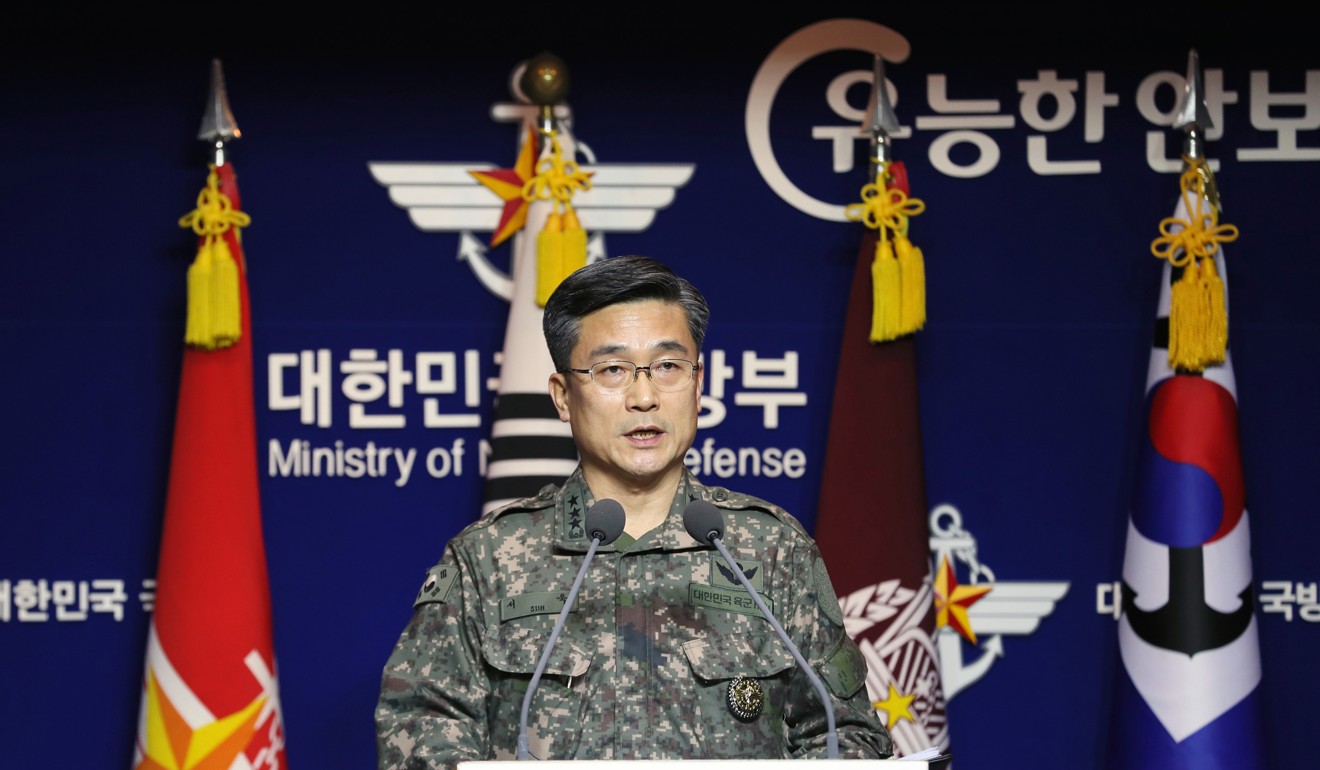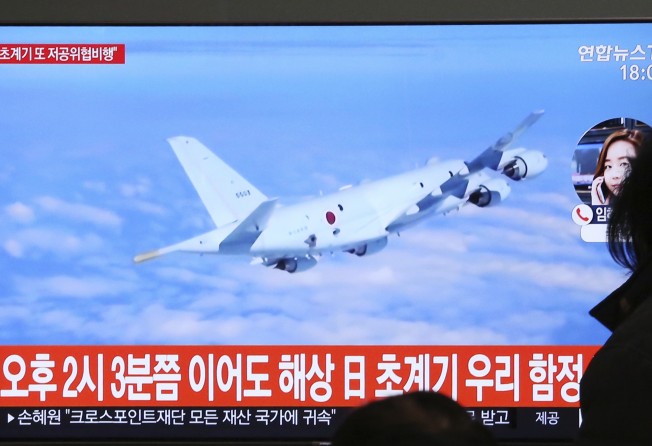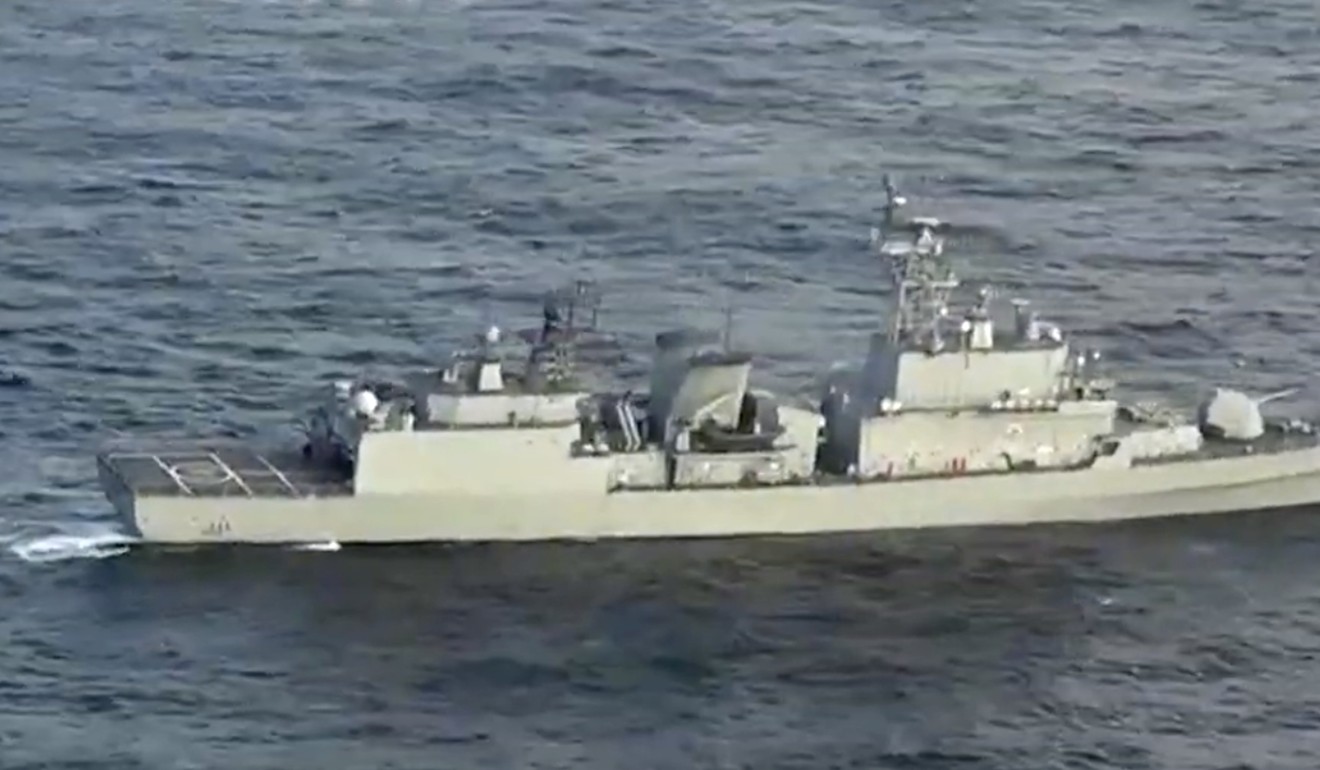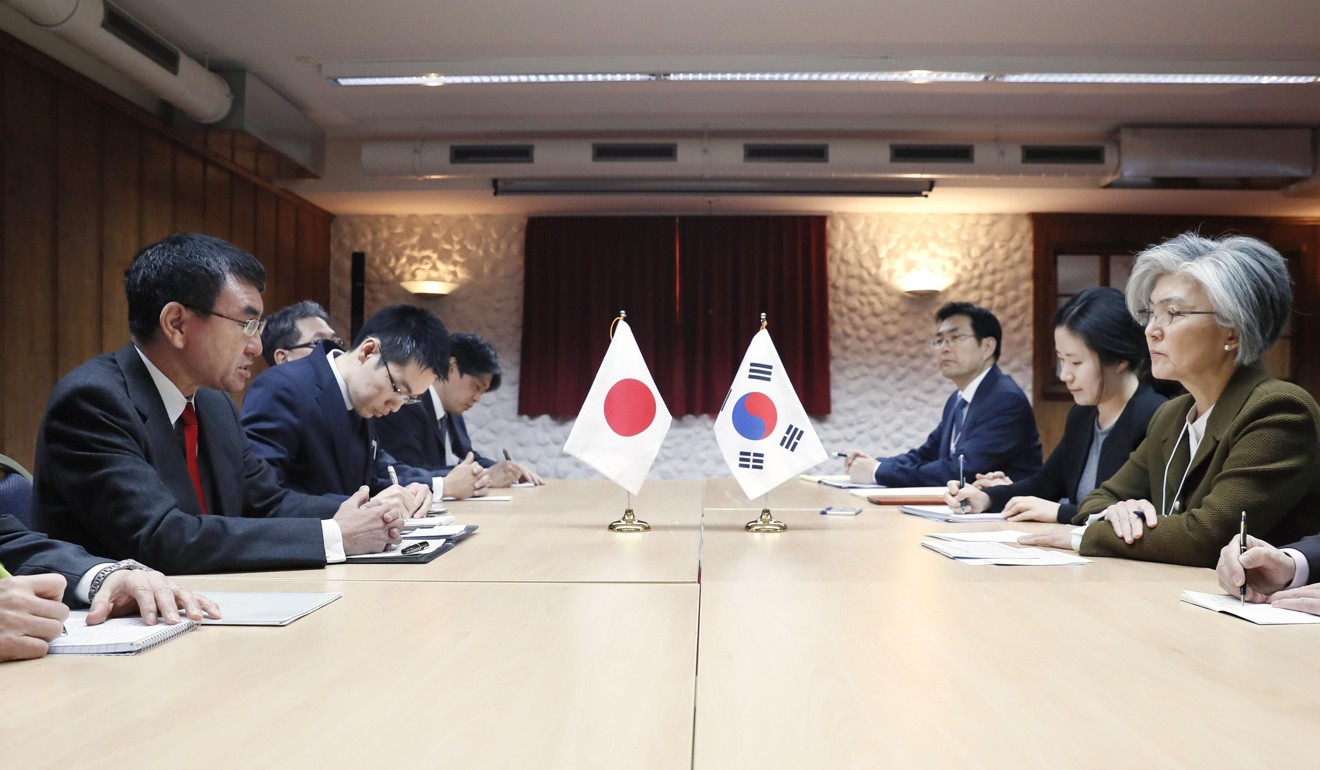
South Korea warns of retaliation against Japan’s ‘provocative’ flights as military relations sour over radar-lock dispute
- Japanese surveillance planes have been flying near South Korean warships “in a threatening manner” since December 20, sparking “strong condemnation” by the South Korean military
- Tokyo and Seoul have been embroiled in a military dispute over an incident where a South Korean navy vessel is alleged to have engaged a fire-control radar against a Japanese aircraft

South Korea’s military on Wednesday said Japanese surveillance planes have repeatedly flown close to its navy ships in recent days, and warned it would take “strong countermeasures” against the “provocative acts” if the flights continued.
The first of such flights occurred on December 20, when a fire-control radar was allegedly engaged by a South Korean navy vessel against a Japanese patrol plane over the Sea of Japan, sparking a rare military row between the two allies.
Over the past week, three more low-altitude flights – on Friday, Tuesday and Wednesday – by Japanese aircraft flew close to South Korean ships in a “threatening manner”, said Suh Wook, chief director of operations at the Joint Chiefs of Staff.

“Although we have clearly asked Japan to prevent recurrences, these low-altitude close-range flights were all carried out in a threatening manner. These clearly constitute provocative acts against a ship of an ally and we strongly condemn them,” said Suh at a press conference. “If these kinds of flights continue, the military will take strong countermeasures in line with its codes of conduct.”
In the last flight, a Japanese Maritime Self-Defense Force’s patrol plane flew close to a South Korean warship at an altitude of 60m-70m and approached as close as 540m from the ship near Ieodo, a submerged rock south of Korea’s southern island of Jeju on Wednesday afternoon, it said.
Bilateral talks to verify the facts of the radar-lock dispute ended abruptly on Monday after Japan halted the meetings, concluding South Korea’s position on the matter was “baseless”.
The Japanese defence ministry released two radar detection audio clips intended to prove the radar was actually used despite South Korea’s denial. Seoul contends that the warship was merely using radar to search for a drifting North Korean fishing boat, and has demanded an apology from Japan, maintaining that a Japanese surveillance plane flew menacingly low toward its destroyer.

Bong Young-shik, research fellow at Yonsei University Institute for North Korea Studies in Seoul, called the dispute a “typical case where those in power are pursuing political gains at the cost of national interests”.
“This is a time when a silent diplomacy is most required. The two countries must not go public with their grievances with each other for their own national interests,” said Bong.
“South Korea should have it in mind that it needs Japan in persuading the North to end its nuclear programme. Japan would be a main source for financial aid to North Korea when the North joins the international community as a normal state and seek to develop its economy.”
South Korean Defence Minister Jeong Kyeong-doo earlier on Wednesday told journalists that Japan has been stirring up over the radar-lock issue because of its “political intent” – echoing speculation by South Korean media that Japanese Prime Minister Shinzo Abe’s government is seeking to rally voter support for its bid to change the country’s pacifist constitution.
Jeong cast Tokyo’s departure from the radar-lock dialogue with Seoul as an “exit strategy” as Japan could not defeat Seoul’s argument “logically and by international law”.
The radar dispute has inflamed bilateral relations that were already strained over Japan’s ongoing claim to a remote island controlled by Seoul and its continued denial of legal responsibility for South Korean victims of wartime atrocities.
It also comes amid mounting suspicion in Tokyo that South Korean President Moon Jae-in, who came to power in 2017, is adopting intentionally aggressive policies towards Japan while he seeks rapprochement with Pyongyang.

The foreign ministers of Japan and South Korea were meeting in Switzerland on Wednesday to discuss the controversial issue of compensation for wartime labour amid increasingly tempestuous relations between the neighbours.
Topping the agenda during their meeting on the fringes of the World Economic Forum in Davos will be how Seoul intends to respond to Tokyo’s recent request for the launch of consultations, as it sees recent South Korean top court rulings over wartime labour as a “breach of international law”.
The face-to-face meeting between Foreign Minister Taro Kono and South Korean counterpart Kang Kyung-wha is the first since the court in October ordered a Japanese firm to compensate for wartime labour during Japan’s 1910-1945 colonial rule of the Korean peninsula.
Tokyo maintains the issue of compensation was settled “completely and finally” under a bilateral accord to settle property claims, signed alongside the 1965 Japan-South Korea treaty that established diplomatic ties.
Japan has been urging South Korea to start talks based on the accord, since a district court in South Korea granted a request from lawyers representing four South Korean plaintiffs to seize assets held by Nippon Steel & Sumitomo Metal.
The Japanese steelmaker had let slip a deadline set by the lawyers for deciding whether to start compensation talks. Mitsubishi Heavy Industries was also ordered by South Korea’s Supreme Court to compensate for wartime labour, in a separate case in November.